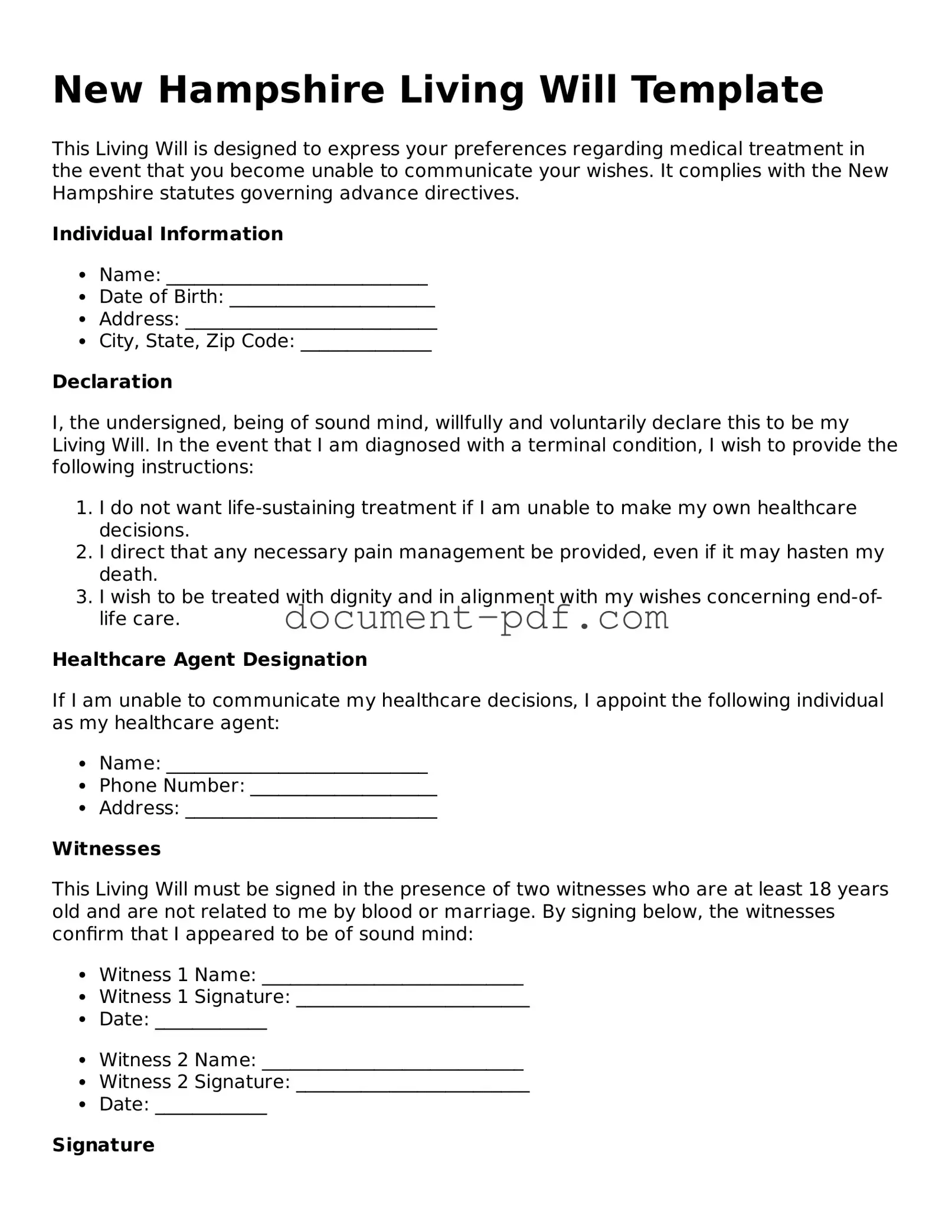Attorney-Verified New Hampshire Living Will Template
A New Hampshire Living Will form is a legal document that allows individuals to outline their wishes regarding medical treatment in the event they become unable to communicate. This form is essential for ensuring that your healthcare preferences are respected when you cannot speak for yourself. Take control of your future by filling out the form below.
Click the button below to get started!
Access Living Will Editor Here

Attorney-Verified New Hampshire Living Will Template
Access Living Will Editor Here
Finish the form without slowing down
Edit your Living Will online and download the finished file.
Access Living Will Editor Here
or
Click for PDF Form
